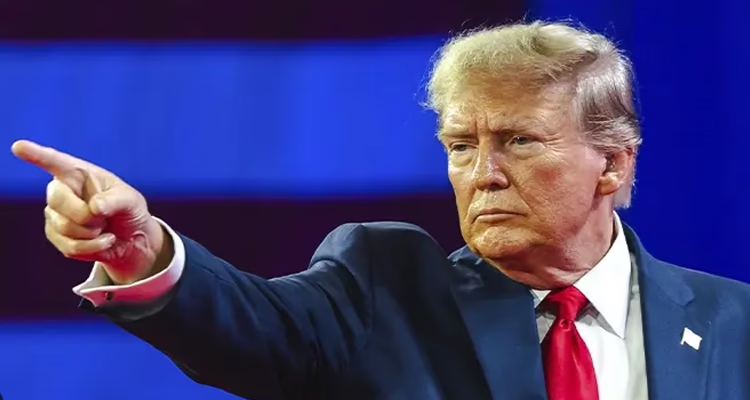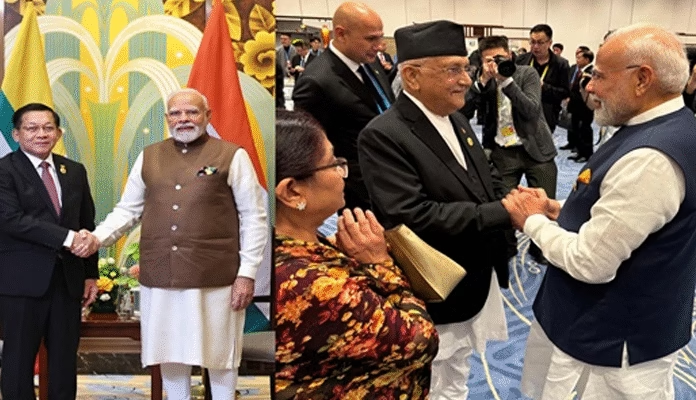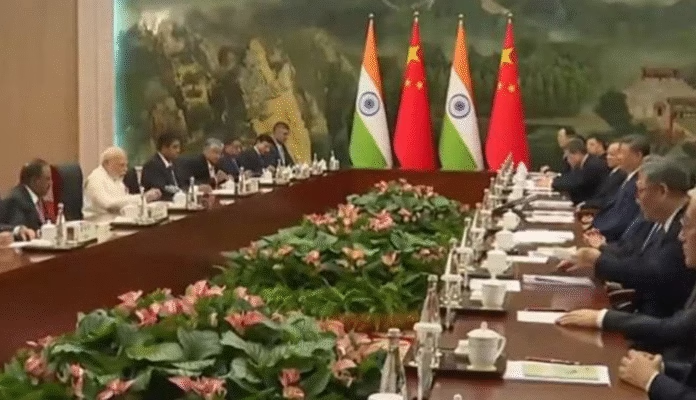
New Delhi: India could soon face a severe economic blow from Washington as a bipartisan sanctions bill in the US Senate proposes a sweeping 500% tariff on imports from countries that continue to purchase Russian energy—putting New Delhi directly in the crosshairs.
Dubbed by its authors as an “economic bunker-buster”, the Sanctioning Russia Act of 2025 aims to strangle Moscow’s energy revenue stream, which it heavily relies on to finance the ongoing war in Ukraine. The legislation, introduced in April by Senators Lindsey Graham (Republican) and Richard Blumenthal (Democrat), has already garnered strong bipartisan support on Capitol Hill.
India Among Key Targets
The proposed law threatens a 500% tariff on all US imports from nations buying Russian oil, gas, petrochemicals, or uranium, a move that could devastate India’s export-driven industries if enforced. With India and China among Russia’s top energy buyers, both countries are being pressured to distance themselves from Moscow’s energy sector or face economic repercussions.
“This is an economic bunker-buster,” said Senator Graham, adding that the bill is designed to “cripple Russia’s war machine by targeting the nations that continue to fuel it.”
The bill comes in response to what its supporters describe as the failure of existing sanctions and diplomatic efforts to deter Russia’s military campaign in Ukraine. Lawmakers argue that without cutting off Russia’s oil and gas revenues, efforts to end the war will remain futile.
Trump Administration Pushes Back
Despite bipartisan enthusiasm in Congress, the Trump administration—now in its second term—has expressed resistance. President Donald Trump, who has prioritized resetting US-Russia relations, is reportedly seeking to soften the bill’s language.
According to reports from The Wall Street Journal, Trump has lobbied lawmakers to change key enforcement terms from “shall” to “may,” giving the White House more discretion. He is also pushing for broad waiver powers that would exempt strategic allies like India from automatic sanctions.
“Rigid sanctions take away diplomatic flexibility,” Trump is said to have argued, emphasizing that engagement, not pressure, may be the better path to peace.
Broad Support in Senate
Despite Trump’s reservations, momentum for the bill remains strong. Senator Graham recently told NBC News that the proposal has 84 co-sponsors in the Senate, signalling a high probability of passage.
“We’re going to give the president a waiver. It’ll be a tool in his toolbox to bring Putin to the table,” Graham said.
Senate Majority Leader John Thune confirmed that discussions are underway to bring the bill to the floor in the coming weeks, potentially aligning it with ongoing diplomatic initiatives.
India Caught in the Crossfire
India’s continued import of discounted Russian crude has helped cushion domestic fuel prices but has drawn growing scrutiny from Washington. Analysts warn that if passed in its current form, the sanctions bill could inflict severe economic costs on India, particularly in sectors reliant on exports to the US, including textiles, pharmaceuticals, and IT services.
Foreign policy experts also caution that the aggressive nature of the bill risks alienating allies like India, undermining broader efforts to build a united global front against Russia.
“A 500% tariff is not just punitive—it’s disruptive,” said one trade analyst. “It may end up hurting US-India relations as much as it hurts Russia.”
Room for Revisions
The legislation is still evolving, with policy revisions expected as it moves through Congress. Matt Zweig, senior policy director at FDD Action, noted that the bill may undergo refinements in consultation with the White House and US allies.
“With sanctions legislation, you often go through a careful, iterative process. There’s room to adjust,” Zweig told Politico.
As India continues to navigate its strategic partnerships with both Russia and the US, the coming weeks will be critical in determining whether diplomacy or economic coercion will define the next phase of Indo-US relations.



